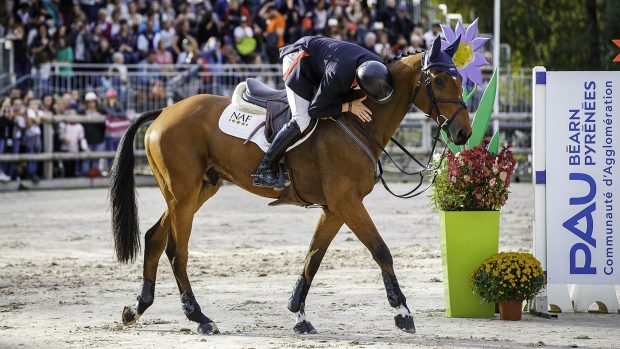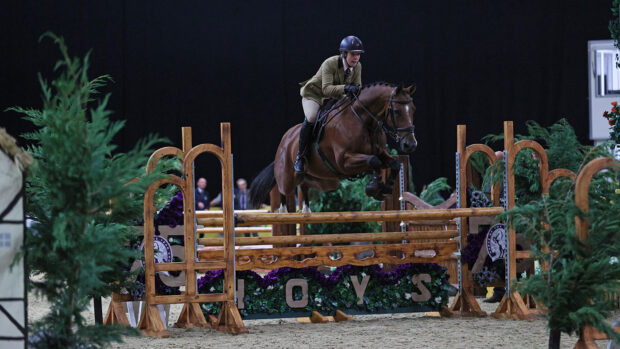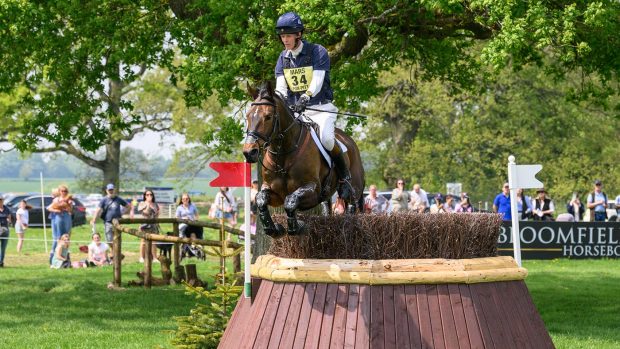It’s a slightly flat finish for Britain in the individual Olympic showjumping – all our riders and horses went well today, but none of them could quite remain fault-free for a medal.
Nick Skelton (pictured) was so unlucky to have his first pole of the competition down in the final moments after five clear rounds in Greenwich. Interviewed on the BBC afterwards, he said he’s been in this position before and he’ll just have to keep going – with Nick being 54, you have to admire that continuing commitment to his sport.
But nothing can take away from the gold our team won on Monday and they should all go home hugely satisfied with the result.
Which format?
Looking back over the team contests for the three Olympic equestrian disciplines, I’ve thought a lot about the number in a team/number to count dilemma. I know there are lots of reasons for the decisions made about this in the Olympics, to do with international participation and so on, but here are my thoughts.
“All to count” – as in the Olympic dressage format (three in a team/all to count) – sounds good in terms of a simple format which makes the sport easier for the general public to understand.
Because I live with a commentator, we talk constantly about this (it’s romantic, honest) and about how to present team scores when a competition is still rolling – when is the “best possible” the most sensible and when is “worst possible” more useful? “All to count” takes away the need to worry about this because without a discard, you simply keep adding.
So “all to count” sounds good, but that’s until you think about the “horse factor”. Because horses are still animals, with the possibility of a totally out of character performance, I believe a drop score is needed. Also, what a tragedy it would be if a horse from a team in medal contention was injured during the course of the competition, knocking out a whole team’s chances.
There’s a welfare issue here too. While we’d like to believe any rider or team manager would put the horse first in the case of injury, if a horse with a minor problem could still perform reasonably – albeit not brilliantly – the temptation to compete it must be higher if there is no back-up.
Five in a team/three to count, as in Olympic eventing? To me, it seems wrong to win on only just over half a team’s performance. This time, all the top four teams had five jumping clears across country and five completions, but a team could get a gold with only three finishers. That just doesn’t feel right.
So in conclusion, I feel the format we use most in horse sport – four in a team, three to count – is the most sensible. If it ain’t broke…
Fight for individual medals
My other question today is about the rule only letting a certain number of people from each nation through to the final individual contest, as in the dressage freestyle, the showjumping final and the eventing second showjumping round (only three per nation allowed in each).
I don’t think anyone actually lost a chance of an individual medal in London because of this rule, but it could happen. While I’m all in favour of international participation in the Olympics overall, the right to fight for an individual medal in the closing stages should be dependent on performance, not nationality.
And all riders and horses should be able to record a true final Olympic result, rather than being left saying they were 27th, when in fact they were 15th after the first round, as happened to William Fox-Pitt and Lionheart.
That’s my two pennies worth for the day, for what it’s worth. Now, we just have one more day of competition to go, the freestyle to music for the individual dressage medals tomorrow. After that, as our Olympic reporter Catherine Austen said a few days ago, we’ll all have to work out whether there really is life after the London Olympics…
Pippa
Report on the Olympic dressage and showjumping team contests in H&H out this Friday, 10 August. Report on the individual competitions and commemorative special issue out next Thursday, 16 August.




